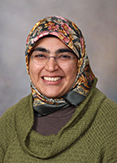Background:
The public charge rule was conceived of centuries ago in an effort to limit immigration of “undesirables” to the US. It evolved into its more current form after the passage of welfare reform in 1996, limiting benefits that legal immigrants could access upon arrival and eliminating some benefits for undocumented immigrants. The impetus for public charge stemmed from the idea that new immigrants should be able to prove self-sufficiency in the US rather than relying on welfare and other public benefits. In October 2018, DHS proposed expanding the current form of public charge to make non-cash benefits like Medicaid and food stamps potential factors that could weigh negatively in immigrants’ green card and citizenship applications. Before a rule can go into effect as law, there must be a 60-day comment period for the public to share individual comments and selected organizations to provide formal analytical statements. The proposed rule forces immigrants to make a choice between accessing public benefits that they are entitled to and having a less complicated path to citizenship. However, forgoing medical, food or housing benefits can exacerbate financial insecurity, which erodes the safety net that limits children and families in need from falling through the cracks, which is poor policy for public health.
The purpose of this project is to examine both potential direct and indirect effects of the proposed expansion of public charge by looking at historical precedent, estimates using the Manatt Tool and a completing a literature review.
Objectives:
1. To examine the impact of proposed public charge rule expansion on immigrants in the US.
2. To contribute to Health Law Advocates’ (HLA) formal analysis and official submission of the impact to the Department of Homeland Security (DHS).
Methods:
1. Performed a literature review and examine historical precedent to analyze direct and indirect impacts of public charge rule expansion
2. Applied and compared projections of indirect impacts of using the Manatt Tool
3. Prepared a document summarizing the literature and projections of indirect impacts that was incorporated into a formal submission by HLA to DHS.
Results:
The creation of a formal analysis by HLA that was submitted to DHS during the public comment period. Among over 200,000 individual comments, selected advocacy organizations were also tasked with providing formal comments. HLA submitted an analysis to DHS, which is currently reviewing all comments and analyses before determining how to proceed with the proposed rule expansion.
Future Directions:
1. Publish educational material on impacts of public charge to educate and engage the public in advocacy for immigrants
2. Work closely with immigrant rights groups to look at alternative ways to meet needs
Preceptor: Justin Lowe, JD, Health Law Advocates, Boston, MA


